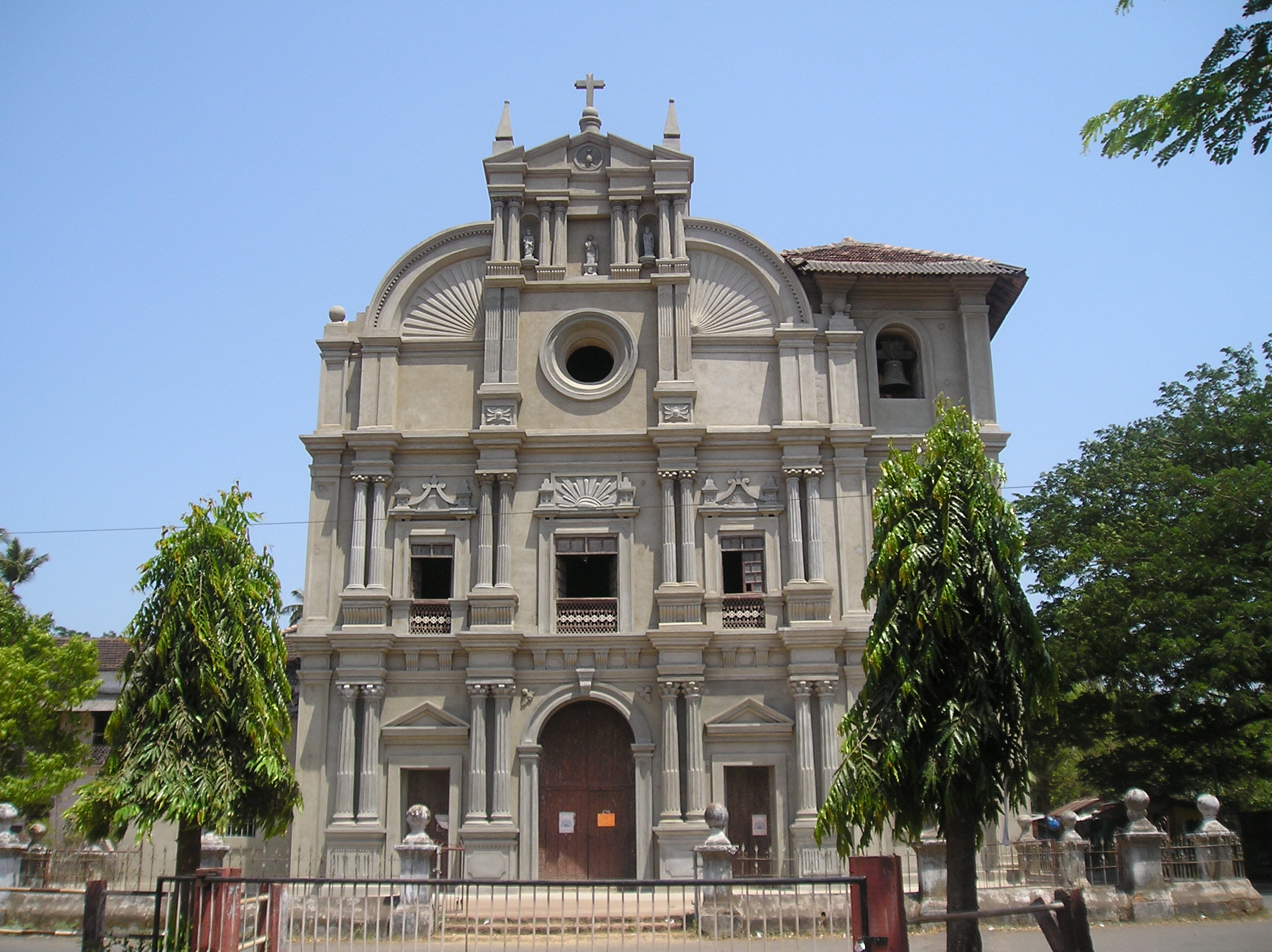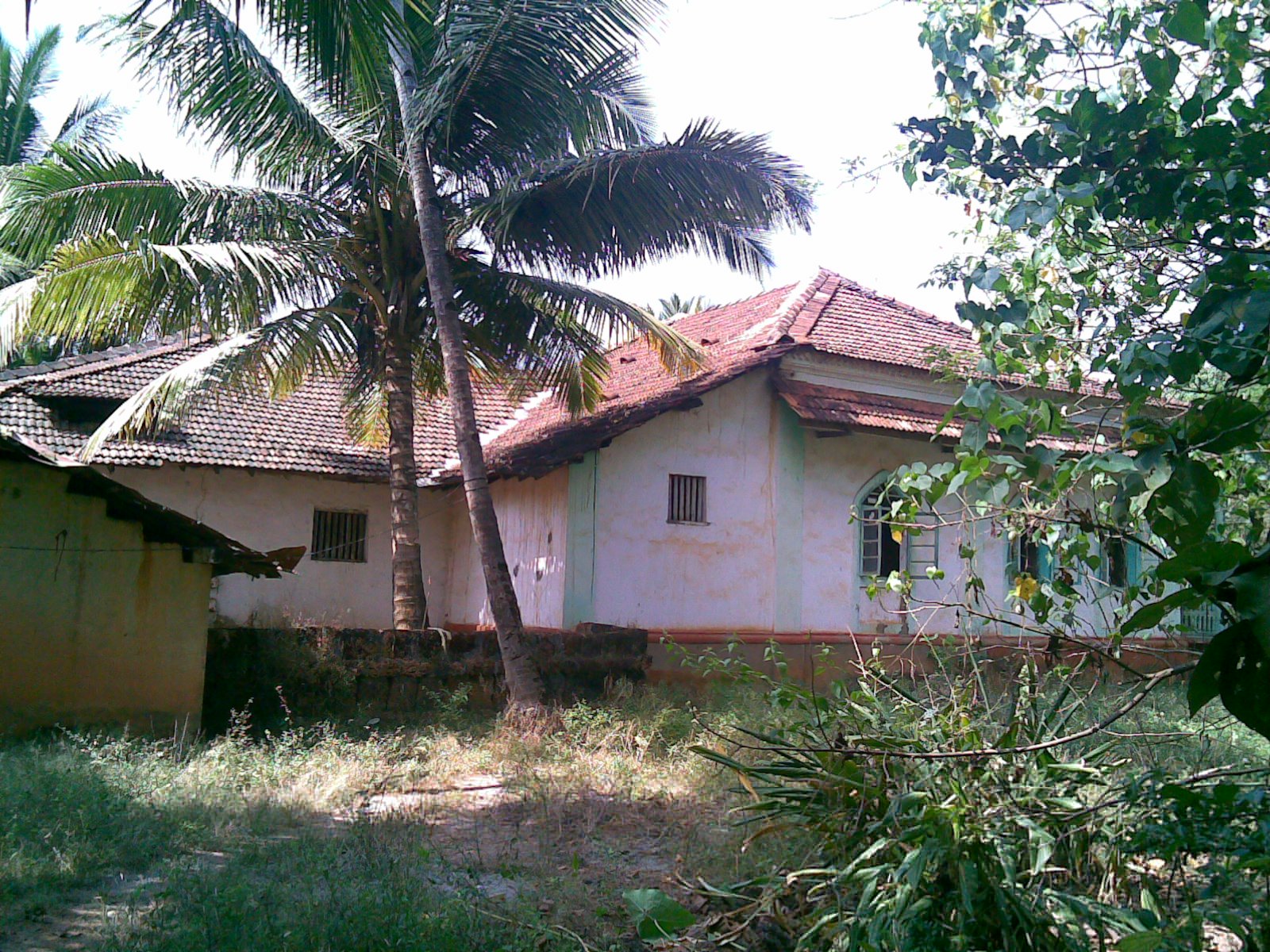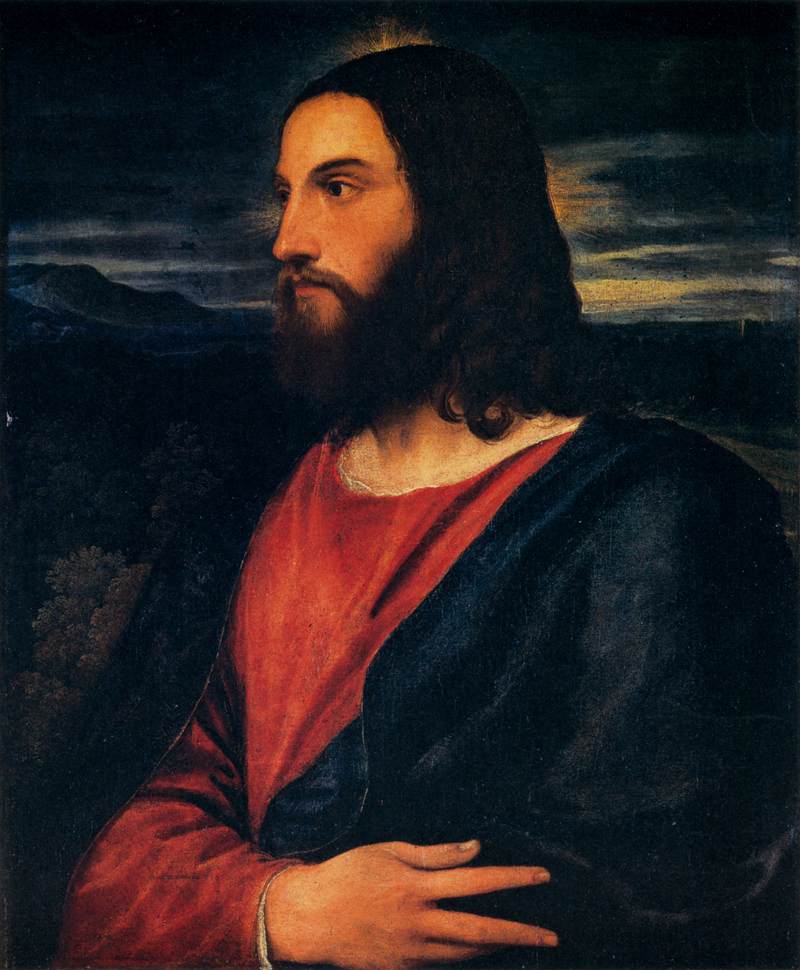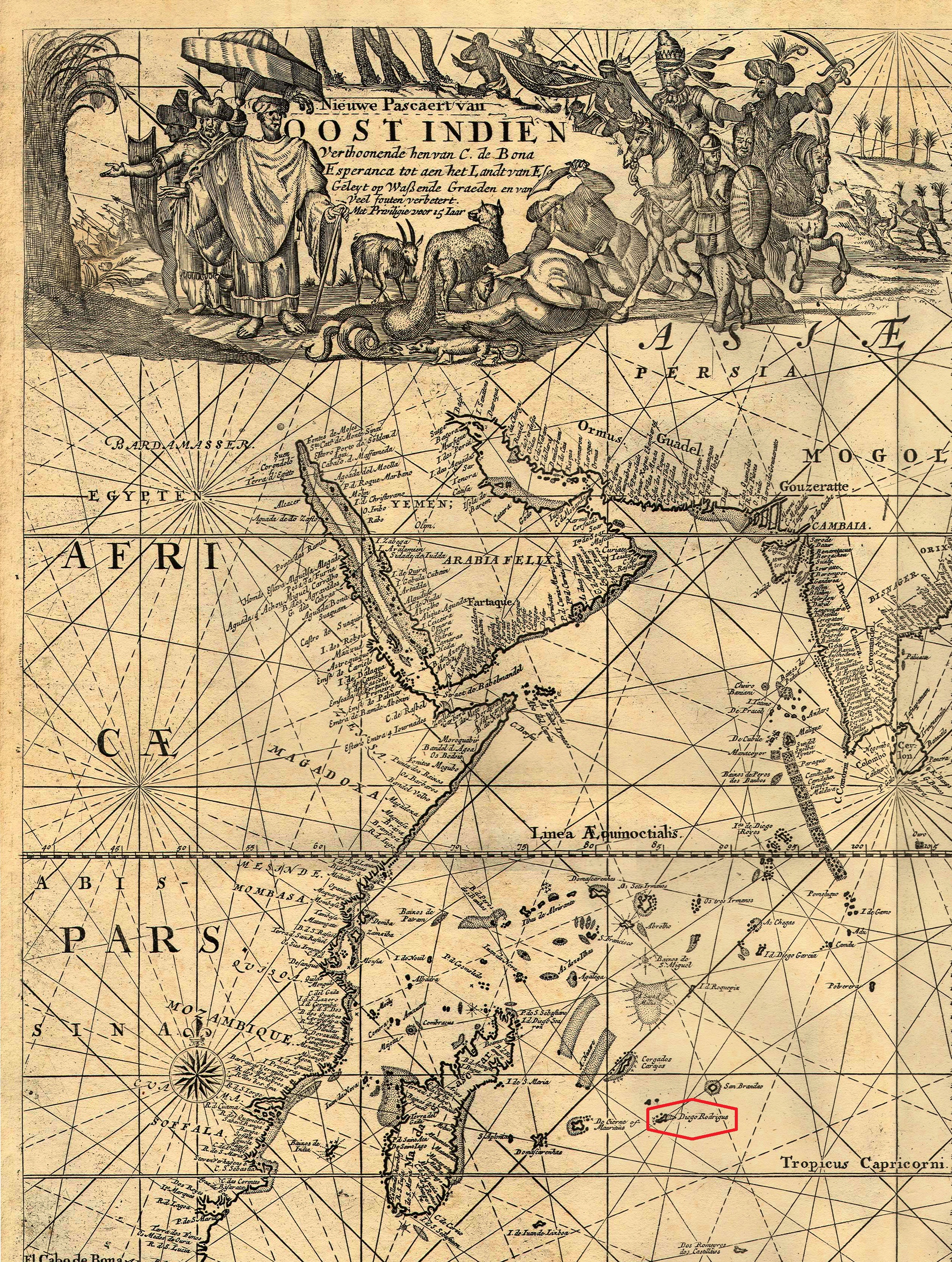|
Loutulim
Loutolim or Loutulim ''Lottli'' pronounced:, Portuguese: ''Loutulim)'' is a large village of South Goa district in the state of Goa, India. It is an important settlement in the Salcete sub-district. Etymology Loutolim derives its name from ''Lovótollem'', coined from the Konkani words—''Lovó'', a type of grass and ''Tollem'', a pond—since those grasses used to grow abundantly around the pond. In Konkani, the local language, the village is known as ''Lottli'' and its native inhabitants are referred to as ''Lottlikar''. History According to a legend, Brahmins from northern India founded the settlement of Loutolim when they emigrated to Goa after the Saraswati River in their homeland dried up. The village community was based around the temple of Shri Ramnath. There were other smaller temples dedicated to Shri Santeri (Shantadurga) in the village. A new temple of Shri Ramnath was built recently at the same spot. The original idol of Shri Ramnath now st ... [...More Info...] [...Related Items...] OR: [Wikipedia] [Google] [Baidu] |
Salcete
Salcete ( Konkani: ''Saxtti''/''Xaxtti''; pt, Salcette) is a sub-division of the district of South Goa, in the state of Goa, situated by the west coast of India. The Sal river and its backwaters dominate the landscape of Salcete. Historically, the sixty-six settlements south of the River Zuari formed the original Salcette territory. Salcete forms a part of the bigger Konkan region that stretches along the western shoreline of peninsular India. In erstwhile Portuguese Goa, the Salcette ''concelho'' (county) located in the ''Velhas Conquistas'' (Old Conquests) was co-terminous with the undivided Salcette territory (Salcete and Mormugaõ ''talukas''). In 1917, the ''concelho'' was bifurcated into the present-day ''talukas'' of Mormugao and Salcette. The contemporary Salcete ''taluka'' has been classified as a rurban area. Margao serves as the administrative headquarters of both Salcete ''taluka'' and the South Goa district. Etymology "Salcete" is the modern angli ... [...More Info...] [...Related Items...] OR: [Wikipedia] [Google] [Baidu] |
Taluka
A tehsil (, also known as tahsil, taluka, or taluk) is a local unit of administrative division in some countries of South Asia. It is a subdistrict of the area within a district including the designated populated place that serves as its administrative centre, with possible additional towns, and usually a number of villages. The terms in India have replaced earlier terms, such as '' pargana'' (''pergunnah'') and ''thana''. In Andhra Pradesh and Telangana, a newer unit called mandal (circle) has come to replace the system of tehsils. It is generally smaller than a tehsil, and is meant for facilitating local self-government in the panchayat system. In West Bengal, Bihar, Jharkhand, community development blocks are the empowered grassroots administrative unit, replacing tehsils. As an entity of local government, the tehsil office (panchayat samiti) exercises certain fiscal and administrative power over the villages and municipalities within its jurisdiction. It is the ultimate execu ... [...More Info...] [...Related Items...] OR: [Wikipedia] [Google] [Baidu] |
Margao
Margao or Madgaon is the commercial capital of the Indian state of Goa. It stands on banks of the Sal river and is the administrative headquarters of Salcete sub-district and South Goa district. It is Goa's second largest city by population after Vasco. Etymology ''Margão'' is the Portuguese spelling, with (''Madgao'') being used in Konkani. The etymology of the name has been debated, with theories ranging from the name having evolved from the pre-colonial Mahargao (“village of Mahars”, a large community of weavers) to being derived from the Sanskrit (''Maṭhagrāma'') which means "a village of monasteries" owing to the shrines of Matsyendranath and Gorakhnath in ''Ravanphond'', now a suburb of Margao. Alternatively Margão may be derived from Mharuganv, “village of demons”, or Maravile, Portuguese for “marvellous village.” History Margao in pre-Portuguese times was one of the important settlements in Salcete and known as ''Matha Grama'' (the village of M ... [...More Info...] [...Related Items...] OR: [Wikipedia] [Google] [Baidu] |
Goud Saraswat Brahmin
Gaud Saraswat Brahmins (GSB) (also Goud or Gawd) are a Hindu Brahmin community of the north. The Konkani speaking Gaud Saraswat of Goa and southern India claim to be descendents of these Gaud Saraswat Brahmins of the north that migrated to Konkan from Gaud, as per the Skanda Purana. Their traditional occupation was trading. Etymology There are many interpretations on how the Gaud Saraswat Brahmins received the name "Gaud" and the information about it is scant. Authors Jose Patrocinio De Souza and Alfred D'Cruz interpreters that the word ''Gauda'' or ''Goud'' may have been taken from ''Ghaggar'', with ''Goud'' and ''Saraswat'' having the same meaning, that is an individual residing on the banks of river Saraswati. Scholars write that "Shenvi" and "Gaud Saraswat Brahmin" are synonyms. Historically, Jana Tschurenev states that the Shenvis were a community that claimed to be Brahmins. The name GSB is a modern construction based on newly curated caste history and origin legends ... [...More Info...] [...Related Items...] OR: [Wikipedia] [Google] [Baidu] |
Hindu
Hindus (; ) are people who religiously adhere to Hinduism.Jeffery D. Long (2007), A Vision for Hinduism, IB Tauris, , pages 35–37 Historically, the term has also been used as a geographical, cultural, and later religious identifier for people living in the Indian subcontinent. The term ''"Hindu"'' traces back to Old Persian which derived these names from the Sanskrit name ''Sindhu'' (सिन्धु ), referring to the river Indus. The Greek cognates of the same terms are "''Indus''" (for the river) and "''India''" (for the land of the river). The term "''Hindu''" also implied a geographic, ethnic or cultural identifier for people living in the Indian subcontinent around or beyond the Sindhu (Indus) River. By the 16th century CE, the term began to refer to residents of the subcontinent who were not Turkic or Muslims. Hindoo is an archaic spelling variant, whose use today is considered derogatory. The historical development of Hindu self-identity within the local In ... [...More Info...] [...Related Items...] OR: [Wikipedia] [Google] [Baidu] |
Christians
Christians () are people who follow or adhere to Christianity, a monotheistic Abrahamic religion based on the life and teachings of Jesus Christ. The words ''Christ'' and ''Christian'' derive from the Koine Greek title ''Christós'' (Χριστός), a translation of the Biblical Hebrew term ''mashiach'' (מָשִׁיחַ) (usually rendered as ''messiah'' in English). While there are diverse interpretations of Christianity which sometimes conflict, they are united in believing that Jesus has a unique significance. The term ''Christian'' used as an adjective is descriptive of anything associated with Christianity or Christian churches, or in a proverbial sense "all that is noble, and good, and Christ-like." It does not have a meaning of 'of Christ' or 'related or pertaining to Christ'. According to a 2011 Pew Research Center survey, there were 2.2 billion Christians around the world in 2010, up from about 600 million in 1910. Today, about 37% of all Christians live in the Am ... [...More Info...] [...Related Items...] OR: [Wikipedia] [Google] [Baidu] |
Bardez
''Bardez'' ( kok, Bardes; pt, Bardes; IPA: ) is a ''taluka'' of the North Goa district in the Indian state of Goa. It was a ''concelho'' in the Portuguese State of India before 1961. Etymology The name is credited to the Saraswat Brahmin immigrants who emigrated to the Konkan via Magadha plains in northern India. Bardez, or more properly ''bara'' (twelve) ''desh'' (country), means "twelve countries" (or territories). The form 'country' probably refers to clan territorial limits, or to the Brahmin ''comunidades'', of which the twelve are: # Aldona # Anjuna # Assagao # Candolim # Moira # Nachinola # Olaulim # Pomburpa # Saligao # Sangolda # Serula # Siolim Bardez is delimited on the north by the Chapora River, on the south by the Mandovi River, on the east by the Mapusa River, which originates in Bardez itself near the capital city of Mapusa, and on the west by the Arabian Sea. A native of Bardez is called a ''Bardeskar'' or ''Bardescar'' ( IPA: ) in the Konka ... [...More Info...] [...Related Items...] OR: [Wikipedia] [Google] [Baidu] |
Redeemer (Christianity)
In Christian theology, Jesus in Christianity, Jesus is sometimes referred to by the title Redeemer. This refers to the Christian soteriology, salvation he accomplished, and is based on the metaphor of Redemption (theology)#In Christianity, redemption, or "buying back". In the New Testament, ''redemption'' is used to refer both to deliverance from sin and to freedom from captivity. Although the gospels do not use the title "Redeemer", redemption is used in several of Pauline epistles, Paul's letters. Leon Morris says that "Paul uses the concept of redemption primarily to speak of the saving significance of the death of Christ." Universality The New Testament speaks of Christ as the one Saviour for all people.On Christ's role as universal Saviour, cf. Gerald O'Collins, ''Salvation for All: God's Other Peoples'', OUP (2008). The First Epistle of John says that Jesus is "the propitiation for our sins and not for ours only but also for the sins of the world" (wikisource:Bible (Ameri ... [...More Info...] [...Related Items...] OR: [Wikipedia] [Google] [Baidu] |
Novas Conquistas
The Novas Conquistas or "New Conquests" are a group of seven ''concelhos'' (administrative subdistricts or municipalities) of Goa and Damaon, officially known as Portuguese India. They were added into Goa in the eighteenth century AD, a comparatively later date than the original three ''concelhos'' that make up the ''Velhas Conquistas'' or "Old Conquests". The seven ''concelhos'' of the ''Novas Conquistas'' are Pernem, Bicholim, Sattari, Antruz ( Ponda), Sanguem (modern-day Sanguem and Dharbandora ''talukas''), Quepem, and Canacona. Silvassa was a newly conquered area in the territory of Damaon, Diu& Silvassa In writing postal addresses, the ''Novas Conquistas'' were abbreviated "N.C." History In December 1764 Hyder Ali, the king of Mysore, sent his general Fazalullah Khan northward into Soonda via Bednur, where landowners who resisted his administration met severe retribution. Fearing capture, the Raja of Soonda fled to Goa, surrendering his territories below the Western G ... [...More Info...] [...Related Items...] OR: [Wikipedia] [Google] [Baidu] |
Hinduism
Hinduism () is an Indian religion or '' dharma'', a religious and universal order or way of life by which followers abide. As a religion, it is the world's third-largest, with over 1.2–1.35 billion followers, or 15–16% of the global population, known as Hindus. The word ''Hindu'' is an exonym, and while Hinduism has been called the oldest religion in the world, many practitioners refer to their religion as '' Sanātana Dharma'' ( sa, सनातन धर्म, lit='the Eternal Dharma'), a modern usage, which refers to the idea that its origins lie beyond human history, as revealed in the Hindu texts. Another endonym is ''Vaidika dharma'', the dharma related to the Vedas. Hinduism is a diverse system of thought marked by a range of philosophies and shared concepts, rituals, cosmological systems, pilgrimage sites, and shared textual sources that discuss theology, metaphysics, mythology, Vedic yajna, yoga, agamic rituals, and temple building, among other to ... [...More Info...] [...Related Items...] OR: [Wikipedia] [Google] [Baidu] |
Diogo Rodrigues
Dom Diogo Rodrigues, Dom Diogo Roiz (; Lagos, Portugal – 21 April 1577; Colvá, Goa) was a Portuguese explorer of the Indian Ocean who sailed as an ordinary helmsmanAuguste Toussaint, ''History of the Indian Ocean'' (Chicago: University Press, 1966), pp. 109 under the command of Dom Pedro Mascarenhas around Goa. They sailed from the Cape of Good Hope eastward into little-known waters of the newly discovered route to Goa. Rodrigues island was named after him between 4 and 9 February 1528 because he had discovered it during his only return journey from Goa via Cochin (left on 15 January 1528) to Lisbon, where he was elevated to the rank of a knight (''cavaleiro'') by John III of Portugal. He then returned to Goa and made a mark in the history of the Portuguese empire in the subcontinent around the mid-16th century. Exploration and Diogo Rodrigues In the early 16th century, Dom Diogo Fernandes Pereira was appointed captain of a Setúbal ship bound for Goa. He is said to ... [...More Info...] [...Related Items...] OR: [Wikipedia] [Google] [Baidu] |



.jpg)




